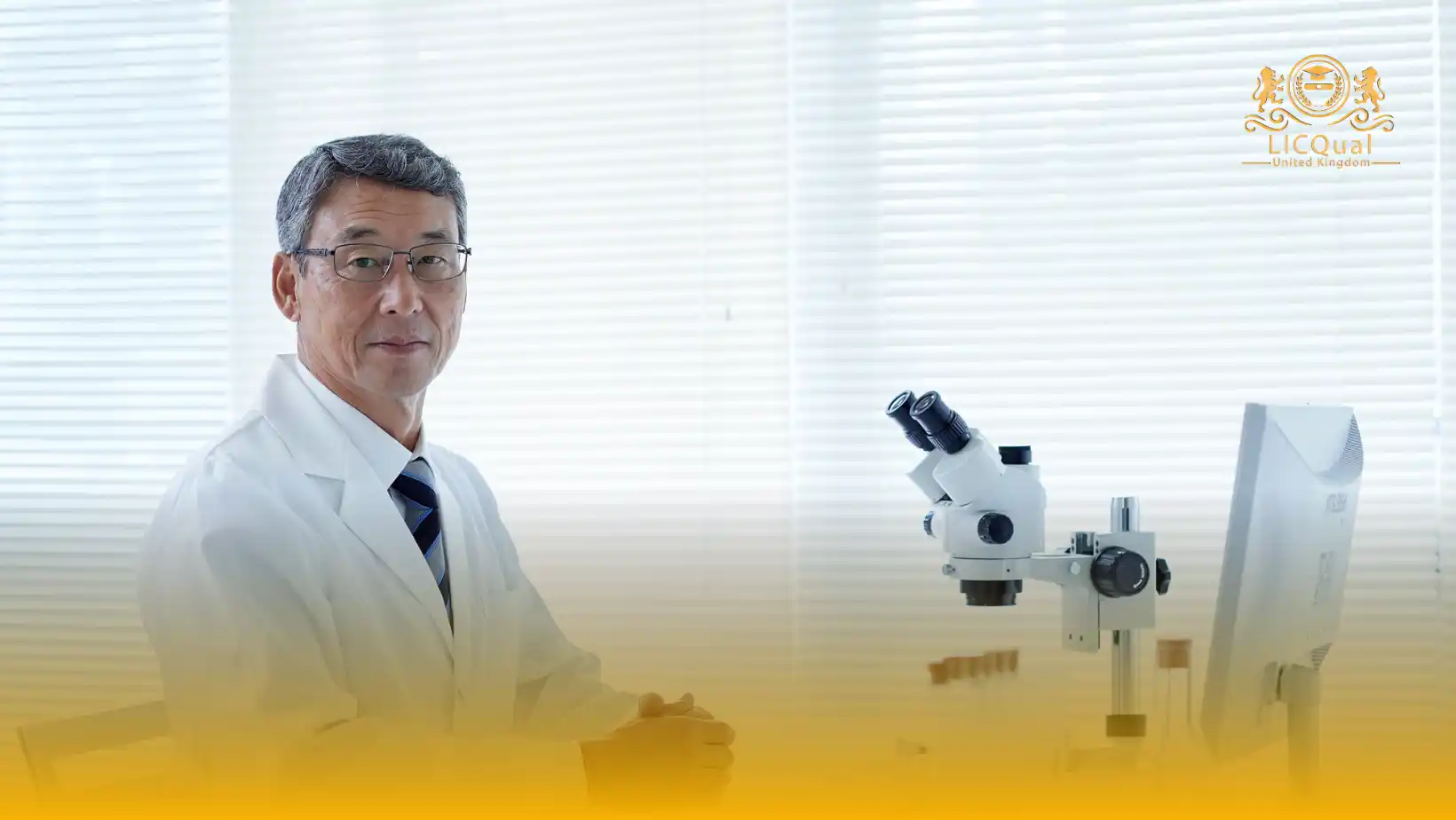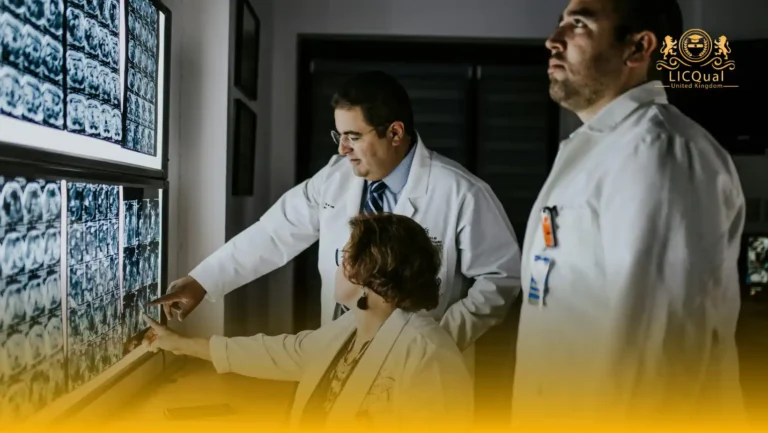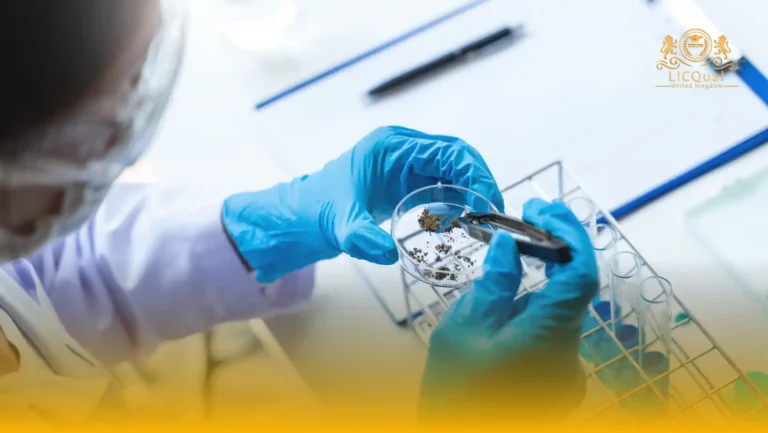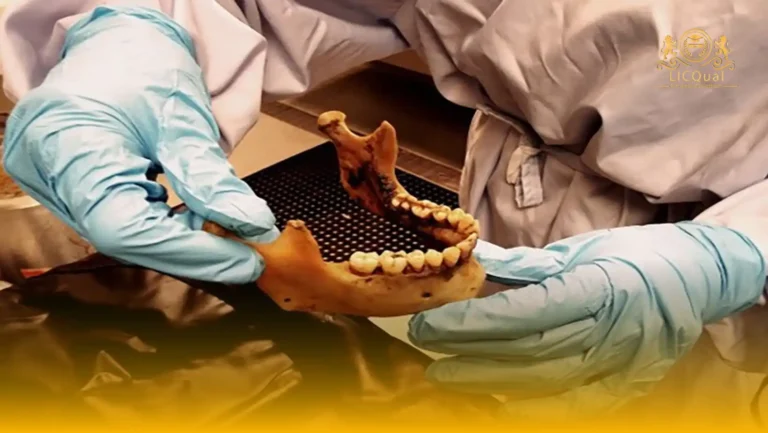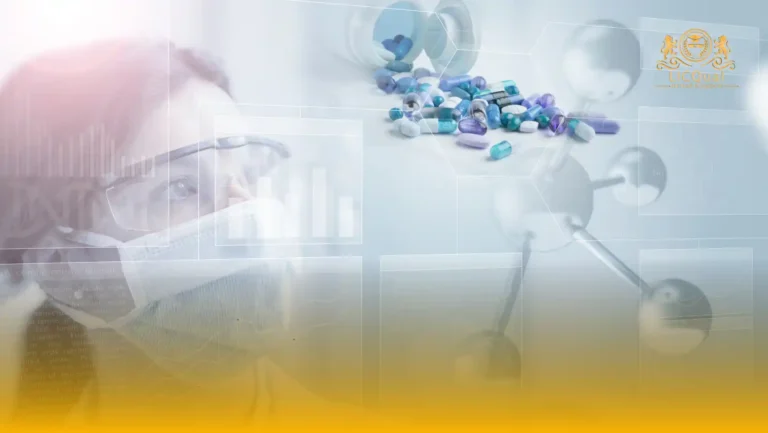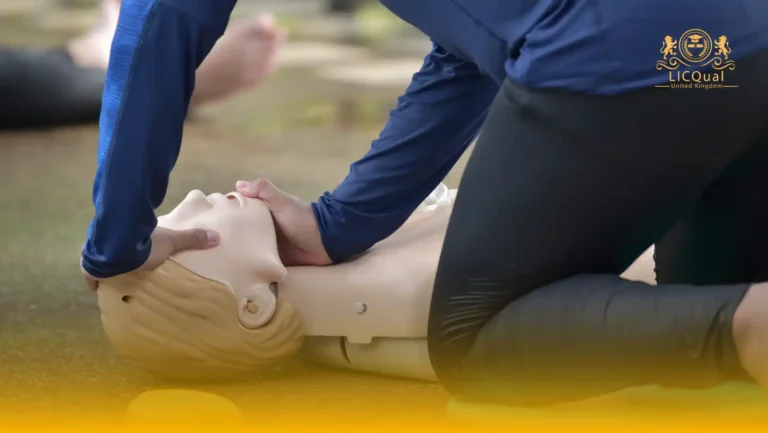The LICQual Level 3 Diploma in Biopharmaceutical Sciences (Dip Biopharmaceutical Sciences) is a specialized qualification designed to equip learners with essential knowledge and skills in one of the most dynamic and innovative areas of the life sciences sector. This diploma focuses on the scientific principles, research methods, and applied practices that underpin the discovery, development, and production of biopharmaceutical products.
Aimed at learners who wish to enhance their career prospects, expand their knowledge, and strengthen their Continuing Professional Development (CPD), the programme provides a solid foundation for understanding biopharmaceutical processes, regulatory frameworks, laboratory techniques, and industry applications. The course blends theoretical learning with practical insights, ensuring learners are prepared for both immediate professional opportunities and long-term career progression.
This qualification is particularly relevant for individuals aspiring to work in pharmaceuticals, biotechnology, research laboratories, and healthcare-related industries. By undertaking this diploma, learners demonstrate their commitment to professional growth, scientific integrity, and innovation within the rapidly evolving field of biopharmaceutical sciences.
Centres delivering this qualification must ensure the presence of competent and qualified staff, alongside access to modern resources, laboratory facilities, and high-quality learning materials. These requirements are vital in providing a professional and supportive environment where learners can develop critical skills, achieve academic success, and progress confidently in their chosen careers.
The Level 3 Diploma in Biopharmaceutical Sciences offers a recognized pathway for learners to gain specialist expertise, contribute to industry advancement, and position themselves for rewarding roles in one of the fastest-growing scientific disciplines.
Course Overview
Qualification Title
LICQual Level 3 Diploma in Biopharmaceutical Sciences (Dip Biopharmaceutical Sciences)
Total Units
6
Total Credits
60
GLH
240
Qualification #
LICQ2201174
Qualification Specification
To enroll in the LICQual Level 3 Diploma in Biopharmaceutical Sciences (Dip Biopharmaceutical Sciences), applicants must meet the following criteria:
|
Qualification# |
Unit Title |
Credits |
GLH |
|---|---|---|---|
|
LICQ2201174-1 |
Fundamentals of Biopharmaceutical Sciences |
10 |
40 |
|
LICQ2201174-2 |
Biopharmaceutical Research Methods and Laboratory Techniques |
10 |
40 |
|
LICQ220174-3 |
Drug Discovery and Development in Biopharmaceuticals |
10 |
40 |
|
LICQ2201174-4 |
Regulatory Affairs and Quality Assurance in Biopharmaceuticals |
10 |
40 |
|
LICQ2201174-5 |
Biopharmaceutical Production and Innovation |
10 |
40 |
|
LICQ2201174-6 |
Professional Development and Ethical Practices in Biopharmaceutical Sciences |
10 |
40 |
By the end of this course, learners will be able to:
Unit 1: Fundamentals of Biopharmaceutical Sciences
By the end of this unit, learners will be able to:
- Explain the key principles of molecular biology, biotechnology, and pharmacology.
- Identify the role of biopharmaceutical sciences within healthcare and life sciences.
- Analyse the differences between traditional pharmaceuticals and biopharmaceuticals.
- Apply foundational scientific knowledge to real-world case studies.
Unit 2: Biopharmaceutical Research Methods and Laboratory Techniques
By the end of this unit, learners will be able to:
- Demonstrate knowledge of research methods used in biopharmaceutical sciences.
- Apply laboratory safety procedures and good laboratory practices (GLP).
- Conduct basic experiments using biotechnological tools and techniques.
- Record, analyse, and interpret experimental data effectively.
Unit 3: Drug Discovery and Development in Biopharmaceuticals
By the end of this unit, learners will be able to:
- Explain the stages of drug discovery, from target identification to clinical trials.
- Analyse pre-clinical and clinical research processes in biopharmaceutical development.
- Evaluate challenges in bringing new biopharmaceutical products to market.
- Apply knowledge of development processes to real-world industry examples.
Unit 4: Regulatory Affairs and Quality Assurance in Biopharmaceuticals
By the end of this unit, learners will be able to:
- Demonstrate understanding of international regulatory frameworks (e.g., EMA, FDA).
- Explain the principles of Good Manufacturing Practice (GMP) and quality assurance.
- Identify risks associated with non-compliance in biopharmaceutical production.
- Apply regulatory and ethical principles when evaluating case studies.
Unit 5: Biopharmaceutical Production and Innovation
By the end of this unit, learners will be able to:
- Explain the processes of bioprocessing and large-scale biopharmaceutical production.
- Identify key technological innovations shaping the biopharmaceutical industry.
- Analyse the role of sustainability in biopharmaceutical production.
- Evaluate current trends and emerging opportunities in biopharmaceutical innovation.
Unit 6: Professional Development and Ethical Practices in Biopharmaceutical Sciences
By the end of this unit, learners will be able to:
- Demonstrate commitment to Continuing Professional Development (CPD) in the life sciences.
- Apply ethical principles in scientific research and professional practice.
- Reflect on personal skills, strengths, and areas for development.
- Design a professional development plan aligned with career goals in biopharmaceutical sciences.
The LICQual Level 3 Diploma in Biopharmaceutical Sciences (Dip Biopharmaceutical Sciences) is designed for learners who want to specialize in biotechnology, drug development, and advanced pharmaceutical research. This internationally accredited qualification is ideal for pharmacists, scientists, healthcare professionals, graduates, and policy makers who want to strengthen their expertise in biopharmaceutical sciences and contribute to global healthcare innovation. Whether you are starting your career or advancing into leadership roles, this diploma equips you with the skills, recognition, and confidence to succeed in the growing field of biopharmaceutical sciences.
1. Pharmacists and Pharmacy Technicians
- Pharmacists aiming to specialize in biopharmaceutical sciences and drug development
- Pharmacy technicians seeking accredited qualifications in biotechnology and medication safety
- Professionals wanting to reduce risks in biologics and advanced drug therapies
- Staff preparing for roles in hospital research units and pharmaceutical companies
- Learners interested in international standards for biopharmaceutical product safety
2. Scientists and Biotechnology Researchers
- Researchers focusing on molecular biology, biotechnology, and pharmaceutical innovation
- Professionals seeking accredited qualifications in biopharmaceutical sciences and drug discovery
- Staff aiming to strengthen compliance with global biopharmaceutical research standards
- Individuals preparing for careers in laboratory research and clinical trials
- Scientists interested in applying biotechnology to healthcare advancements
3. Healthcare Professionals Focused on Advanced Medicine
- Doctors and practitioners specializing in biopharmaceutical applications in patient care
- Professionals seeking accredited qualifications in advanced drug therapies
- Staff wanting to enhance evidence‑based practice in biopharmaceutical sciences
- Individuals aiming to expand career opportunities in hospitals and research facilities
- Healthcare workers preparing for leadership roles in advanced pharmaceutical practice
4. Graduates in Life Sciences and Medicine
- Students with degrees in medicine, pharmacy, or biotechnology
- Fresh graduates seeking specialized training in biopharmaceutical sciences
- Learners aiming to boost employability with accredited qualifications
- Individuals preparing for careers in drug development and healthcare innovation
- Graduates interested in international pharmaceutical and biotechnological standards
5. Pharmaceutical Industry Professionals
- Employees working in drug manufacturing and biopharmaceutical product development
- Clinical trial coordinators seeking knowledge of biopharmaceutical medication protocols
- Staff aiming to strengthen compliance with global drug safety regulations
- Professionals preparing for leadership roles in pharmaceutical research and development
- Individuals wanting to integrate biotechnology into drug development processes
6. Policy Makers and Regulatory Authorities
- Professionals working in healthcare policy and regulation
- Staff involved in drug approval and compliance processes for biopharmaceutical products
- Individuals aiming to strengthen expertise in international biopharmaceutical standards
- Learners preparing for advisory or consultancy roles in healthcare quality
- Policy makers seeking deeper knowledge of biopharmaceutical safety frameworks
7. Career Changers Entering Biopharmaceutical Sciences
- Professionals from other industries transitioning into biotechnology and pharmaceutical research
- Individuals seeking a structured pathway into drug discovery and development
- Learners aiming to gain practical, job‑ready skills quickly
- Career changers motivated by opportunities in biopharmaceutical sciences and healthcare innovation
- Those wanting internationally recognized qualifications to boost employability
Centres delivering the LICQual Level 3 Diploma in Biopharmaceutical Sciences (Dip Biopharmaceutical Sciences) must meet specific standards to ensure effective delivery, high-quality training, and learner success. The following requirements are essential:
- Qualified and Competent Staff: Trainers, assessors, and internal quality assurers must hold relevant qualifications and have professional expertise in biopharmaceutical sciences, life sciences, or related fields.
- Learning Resources: Centres must provide access to updated study materials, laboratory equipment, research resources, and digital learning platforms that support learner engagement.
- Laboratory and Practical Facilities: Centres must ensure safe, well-equipped laboratory environments for practical activities in line with health and safety standards.
- Assessment and Quality Assurance: Centres should maintain robust systems for assessment, internal verification, and record-keeping to ensure fair, transparent, and reliable learner outcomes.
- Commitment to CPD: All teaching and assessment staff must actively engage in Continuing Professional Development (CPD) to keep their knowledge current and aligned with industry standards.
- Policies and Procedures: Centres must have clear policies for equality, diversity, safeguarding, and learner support, ensuring an inclusive and professional learning environment.
- Technology and Accessibility: Centres should provide learners with access to IT facilities, e-learning tools, and online support for blended or distance learning delivery.
By meeting these requirements, centres can guarantee a professional, high-quality learning experience that equips learners with the knowledge, skills, and competencies needed to succeed in the field of biopharmaceutical sciences.
Assessment and Verification
All units within this qualification are subject to internal assessment by the approved centre and external verification by LICQual. The qualification follows a criterion-referenced assessment approach, ensuring that learners meet all specified learning outcomes.
To achieve a ‘Pass’ in any unit, learners must provide valid, sufficient, and authentic evidence demonstrating their attainment of all learning outcomes and compliance with the prescribed assessment criteria. The Assessor is responsible for evaluating the evidence and determining whether the learner has successfully met the required standards.
Assessors must maintain a clear and comprehensive audit trail, documenting the basis for their assessment decisions to ensure transparency, consistency, and compliance with quality assurance requirements.

